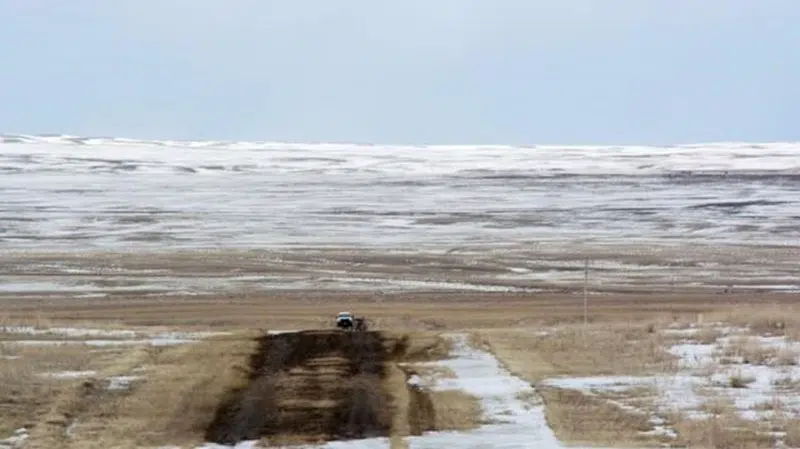
Work starts in Montana on disputed Canada-US oil pipeline
BILLINGS, Mont. — A Canadian company said Monday that it’s started construction on the long-stalled Keystone XL oil sands pipeline across the U.S.-Canada border, despite calls from tribal leaders and environmentalists to delay the $8 billion project amid the coronavirus pandemic.
A spokesman for TC Energy said work began over the weekend at the border crossing in northern Montana, a remote area with sprawling cattle ranches and wheat fields. About 100 workers will be involved in the pipeline’s early stages, but that number is expected to swell into the thousands in coming months as work proceeds, according to the company.
The 1,200 mile (1,930 kilometre) pipeline was proposed in 2008 and would carry up to 830,000 barrels (35 million gallons) of crude daily for transfer to refineries and export terminals on the Gulf of Mexico.
It’s been tied up for years in legal battles and several court challenges are still pending, including one that’s due before a judge next week.


